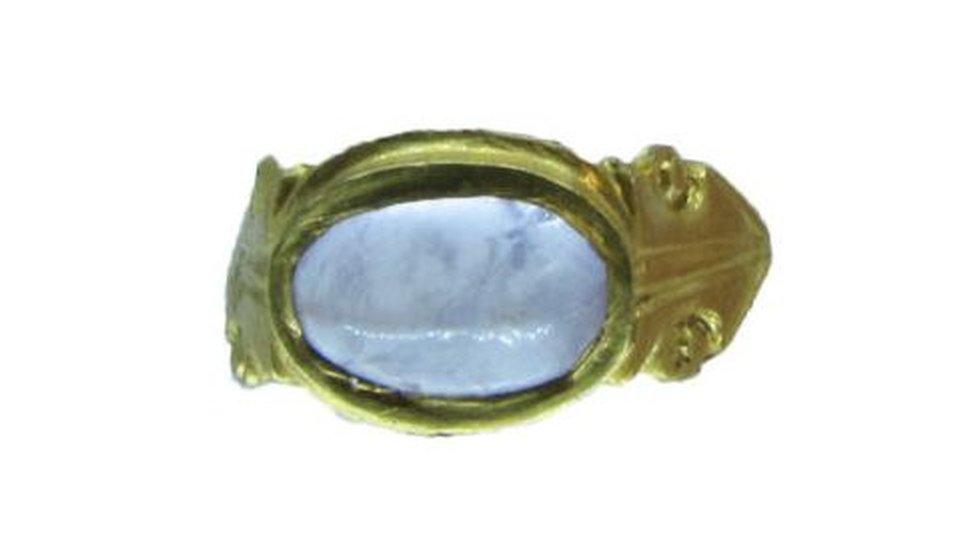Gold ring find reveals 17th Century Great Maplestead family's story
- Published
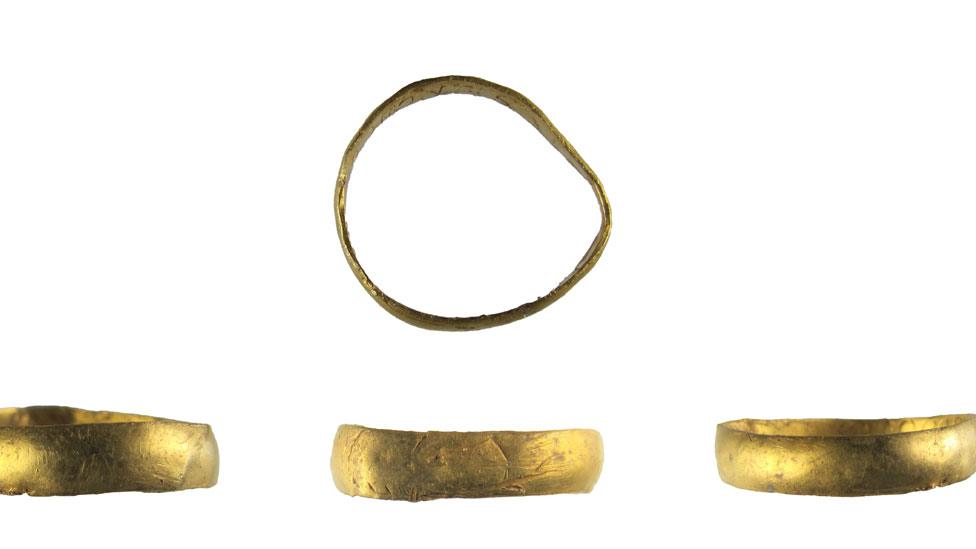
The ring was etched with the letters Sr MG KT and the date 28 October 90 which helped with tracing its story
The story of a 17th Century knight and his wives has been revealed after a detectorist discovered a gold ring.
The ring was made to remember Sir Mark Guyon of Great Maplestead, Essex. It was found about 10 miles away.
During her research, finds liaison officer Lori Rogerson realised his second wife's recipe book is still held by Essex Records Office, external.
The find has shed light on Sir Mark and his family, a man who "clearly wanted to be remembered", she said.
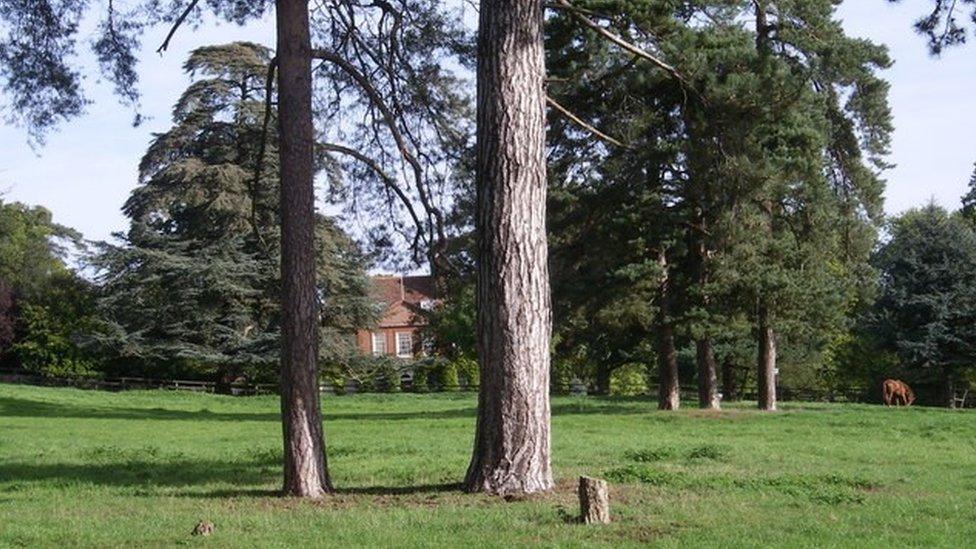
Sir Mark bought and lived in Dyne's Hall, Great Maplestead, which can be glimpsed through the trees above
The battered ring was engraved with a skull and the letters "Sr MG KT" and the date "28 October 90".
Research linked this to Sir Mark Guyon, who was born the son of a wealthy Coggeshall clothier in 1635 and died at Dynes Hall, Great Maplestead, in 1690.
Miss Rogerson said: "We have more records of people who had higher positions, which allows us to build a more detailed picture of the person commissioned the ring."
Sir Mark was made sheriff for Essex in 1675, was a justice of the peace in 1678 and was buried at St Peter ad Vincula Church, Coggeshall.
The find was a mourning ring, one of a number he commissioned to be made after his death, intended to be worn by friends or family in his memory.
Such rings were most popular between 1650 to 1750.
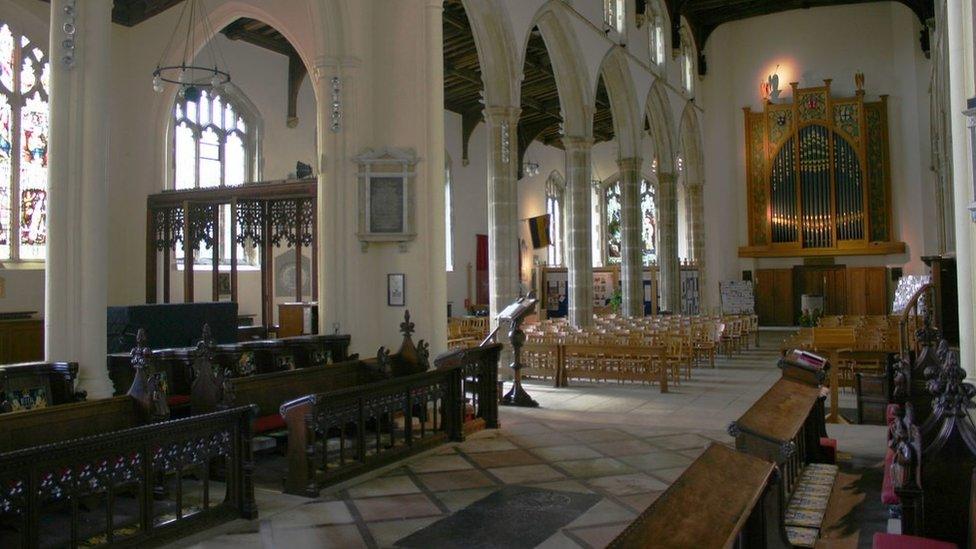
Sir Mark was buried in St Peter ad Vincula Church, Coggeshall, under a black marble slab
While researching Sir Mark's life, Miss Rogerson came across the recipe book, for medicines as well as food, written by his second wife, Abigail Abdy.
Its recipes include cordial water which, the book said, was "good against any infection, as the plague, small pox", as well as those for macaroons and sugar cake.
She died aged just 35 in 1679, probably of plague.
More recipes were then added to the book, possibly by Sir Mark's third wife, external.
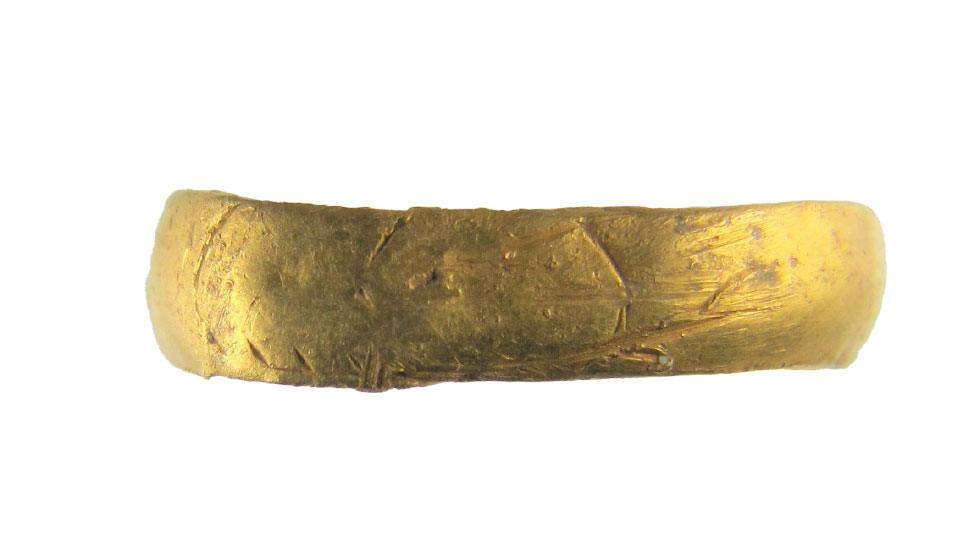
A metal detectorist found the ring about 10 miles away from Great Maplestead
Miss Rogerson said: "What makes the ring more interesting is knowing he had people close to him that died.
"He clearly wanted to be remembered and the mourning rings were an immediate way of telling loved ones, 'Remember me - but also remember that your own life is fragile so make the most of it'."
The find has been declared treasure by a coroner and Braintree Museum hopes to acquire it.

Follow East of England news on Facebook, external, Instagram, external and Twitter, external. Got a story? Email eastofenglandnews@bbc.co.uk, external or WhatsApp us on 0800 169 1830
Related topics
- Published8 April 2023
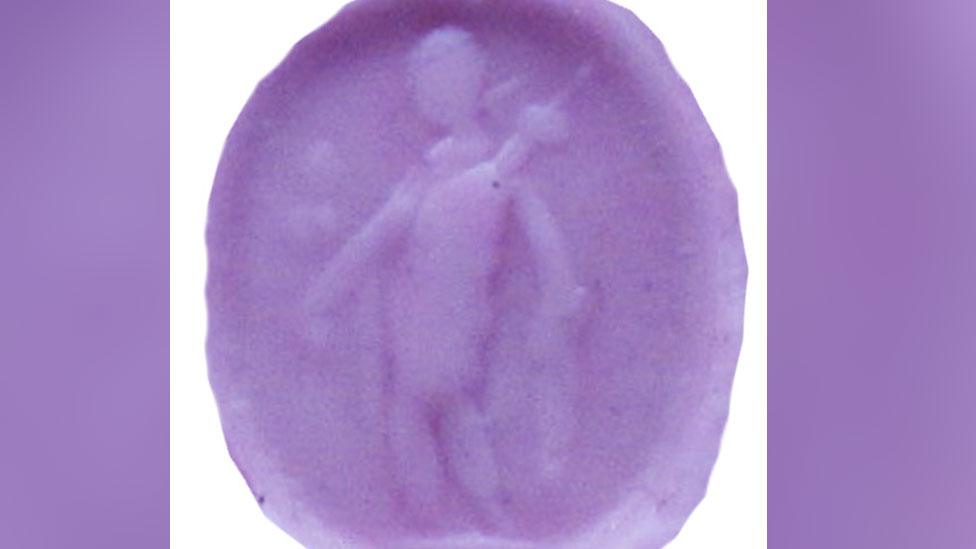
- Published31 October 2022
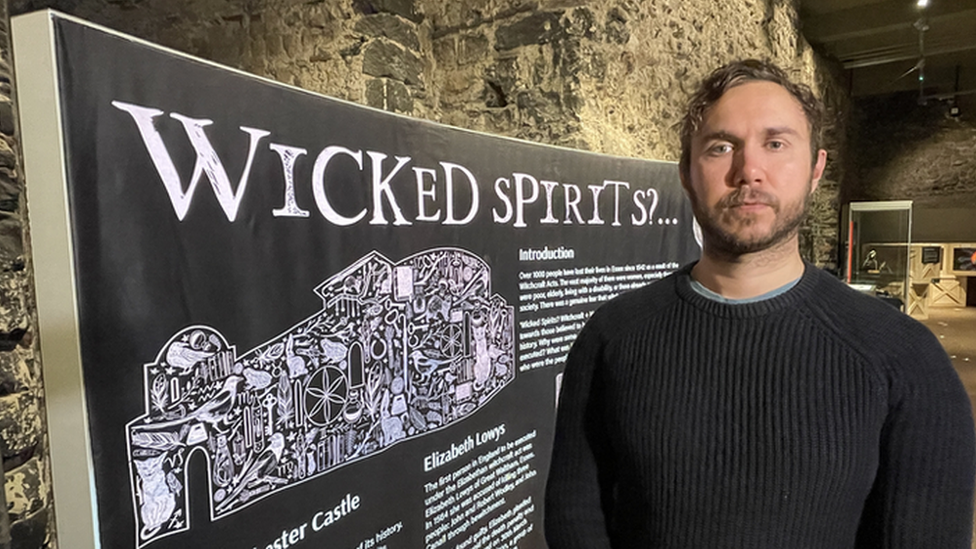
- Published1 November 2019
